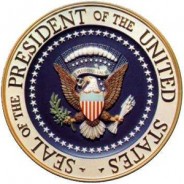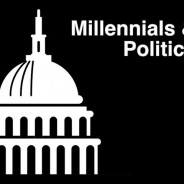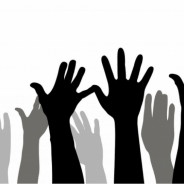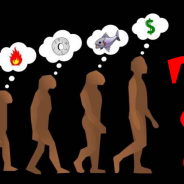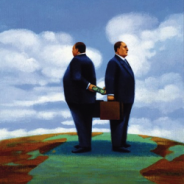Why Preserving The “Face of the Brand” Is So Important: Burt’s Bees and Ben & Jerry’s
The beauty of many entrepreneurial start-ups these days is that their brands can be so refreshingly eccentric and charming. Often they succeed by creating new space in mature categories that no one ever anticipated, and the persona of the founder can make these brands even more distinctive and memorable. Two classic examples are Burt Shavitz for Burt’s Bees, acquired by Clorox in 2007, and Ben Cohen and Jerry Greenfield for Ben & Jerry’s, purchased by Unilever in 2000. When these were acquired however, there was an immediate fear that...
read moreBranding the “Circular Economy” Model for Millennials
Last week, a friend and former client, Leszek Adamczyk, CEO of an innovative environmental software firm in Poland (ATMOTERM), sent me an enlightening article on how younger people in Europe are becoming more engaged in the “circular economy” model and adding fresh ideas for its growth. This article and additional research revealed three interesting insights that are relevant for all marketers. First, the importance of recognizing key global trends and their potential impact on society and business. Second, how the driving force from...
read moreEvery 2016 Presidential Candidate Is a Brand, But They Lack Trust and Authenticity
Essentially each Presidential candidate is a brand. They develop a special persona which they hope will emotionally appeal to their target audience, they own a distinct brand name (e.g. Jeb Bush or Hillary Clinton), and they make brand promises which they believe are relevant for their constituencies. These are the core principles of good branding. Ultimately a successful brand will want a relationship with its target customer that is based on trust, authenticity and credibility. But why are these foundational attributes so lacking for...
read moreWhy Millennials Are Resistant To Advertising And Politics
Much has been written about Millennials, the first “digital generation” (18-35), and their growing influence on business and society. These 86 million younger people are now the most important generation in terms of size and purchasing power – they spend $200 billion annually. They are also the most diverse, with 43% non-white and 25% speaking a foreign language at home. And they will represent 40% of the electorate by 2020, so their potential clout for shaping our future should be enormous. Understanding and adapting to their distinct...
read moreWhat Builds Stronger Brand Equity Among Millennials – Advertising Or Engagement?
The concept of brand equity (i.e. the perceived value of a brand) firmly arrived in the 1980’s when consumer goods companies reacted to a surge of cut throat discounting with a new search for a more sustainable way to boost sales and profits. Their answer was to pour money into well-crafted brands, increase pricing, and highlight distinctive product features, all designed to create a more favorable brand image that would lead to greater loyalty. As David Aaker wrote in his book in 1991, “Managing Brand Equity”, aggressive marketing is needed...
read moreToday’ Big Branding Issue: What Should Companies Stand For?
The question of whether a company should go beyond the core goal of “maximizing shareholder value” as its main reason for being (e.g. to also pursue broader social ends), has been argued for decades. This debate was supposedly resolved in 2000 when two reputable law professors, Henry Hansmann of Yale and Reinier Kraakman of Harvard, pronounced that the world’s legal systems should converge just on this shareholder value model. Since then, several events have shaken the credibility of this model. Not long after their published article on...
read moreHow The Choice Of “Birdman” Jeopardizes The Integrity Of The Oscars Brand
The recent Oscar choice of “Birdman” as the best movie of 2014 not only defied moviegoers’ preferences, but it is also a lesson on how a strong brand can lose credibility and hence trust when it becomes so self-obsessed. One of the cardinal rules of good branding is to consider the interests of the target audience before making decisions that may be inconsistent with what you want your brand to stand for in the eyes (and hearts) of your main customers. For example, was “Birdman” indeed the “best” movie, or simply the “favorite” of the...
read moreNot One US Company Among The 30 Most Transparent – Why? Impact On Brand Trust?
My recent blog on “Why Transparency is Essential For Building Corporate Brand Trust” generated lots of interest, but also begged a key question – what are the most transparent multinationals in the world, and where do US companies stand in these rankings? Transparency International is the most prominent anti-corruption research organization in the world, and their 2014 study rated the transparency of the top 124 multinationals based on three criteria: anti-corruption programs, organizational transparency, and country-by-country reporting. ...
read moreWhy Tranparency Is Essential For Building Corporate Brand Trust
The growing demand for greater corporate transparency, especially among Millennials, should not be news to anyone. Trust in business has reached new lows, as reported by the latest 2014 Edelman Trust Barometer (e.g. only 50% of Americans trust financial service companies), and insufficient transparency has been one of the key reasons. Yes, businesses are trying to develop and promote more their “corporate social responsibility” (CSR) initiatives, but these will never win over customers unless the details and results are transparent enough...
read moreWhy “Capitalism” Must Be Re-Branded – And How
A recent article in the Economist entitled “Capitalism’s Reputation Has Been Damaged by the Bankers” shed light on some fundamental societal trends and issues. These include increasing income inequality, concerns over “fairness”, declining trust in our basic institutions and questioning the basic principles behind property ownership and competition. These issues have contributed to a growing perception of capitalism as a system that benefits other, more select people, but not us. Webster’s dictionary defines a capitalist as “a person who...
read more
